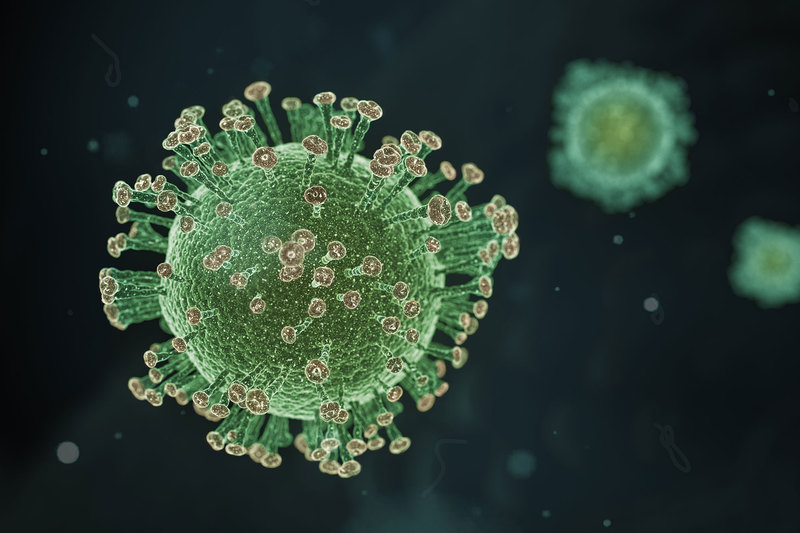New platform launched to explore the effects of COVID-19
02 April 2020 | Story Supplied. Photo Flickr. Read time 2 min.
Engaged scholarship is needed to understand the socio-cultural, political and economic implications of COVID-19. The University of Cape Town’s (UCT) Institute for the Humanities in Africa (HUMA), along with international collaborators, has launched Corona Times, a space where engaged scholars from across the world offer detailed, rigorously researched, ethical expert commentary that explores ways to grasp the wide-spread effects of the virus.
Scholars also propose ways forward and evaluate social, economic and public health interventions on multiple temporal scales.
Commentary thus far includes “Academic freedom in times of COVID-19”, “Social distancing and ‘flatten the curve’: Africa can do it” and “Trust in science and Sweden’s different approach to COVID-19”.
As the death toll increases and the negative economic effects deepen, there is no certain timeline related to when a vaccine might be ready, and it is not known when current measures of containment will end.
“One thing is clear: academic debate and pluralism can help us grapple with the many uncertainties provoked by the virus. The epidemiological data is emerging, but it is still limited. Even more obscure are the socio-cultural, political and economic implications of the pandemic,” the editorial team said.
““Academic debate and pluralism can help us grapple with the many uncertainties provoked by the virus.”
“For example, what does contagion mean for people and their everyday lives; who or what do people hold responsible, if anybody or anything, for the onset of the pandemic; and how are people mourning their dead when in many cases they can’t perform their rituals of mourning?”
Thinking further, they said, what happens to ideas – such as government, state, citizenship, rights, and life itself – that have been used to theorise collective action and political community?
According to the editorial team, to rediscover our interconnectedness and warmth in these times of existential crisis, we need to rethink and remould ideas of freedom, responsibility and interdependence. Knowing how and when to restrain ourselves is also a fundamental freedom that nurtures individuals and societies.
Corona Times is a blog and public engagement project launched by UCT’s HUMA.
 This work is licensed under a Creative Commons Attribution-NoDerivatives 4.0 International License.
This work is licensed under a Creative Commons Attribution-NoDerivatives 4.0 International License.
Please view the republishing articles page for more information.
UCT’s response to COVID-19
COVID-19 is a global pandemic that caused President Cyril Ramaphosa to declare a national disaster in South Africa on 15 March 2020 and to implement a national lockdown from 26 March 2020. UCT is taking the threat of infection in our university community extremely seriously, and this page will be updated with the latest COVID-19 information. Please note that the information on this page is subject to change depending on current lockdown regulations.
Minister of Health, Dr Joe Phaahla, has in June 2022 repealed some of South Africa’s remaining COVID-19 regulations: namely, sections 16A, 16B and 16C of the Regulations Relating to the Surveillance and the Control of Notifiable Medical Conditions under the National Health Act. We are now no longer required to wear masks or limit gatherings. Venue restrictions and checks for travellers coming into South Africa have now also been removed.
Read the latest document available on the UCT policies web page.
Campus communications
2022
UCT Community of Hope Vaccination Centre
On Wednesday, 20 July, staff from the University of Cape Town’s (UCT) Faculty of Health Sciences came together with representatives from the Western Cape Government at the UCT Community of Hope Vaccination Centre at Forest Hill Residence to acknowledge the centre’s significance in the fight against COVID-19 and to thank its staff for their contributions. The centre opened on 1 September 2021 with the aim of providing quality vaccination services to UCT staff, students and the nearby communities, as well as to create an opportunity for medical students from the Faculty of Health Sciences to gain practical public health skills. The vaccination centre ceased operations on Friday, 29 July 2022.
With the closure of the UCT Community of Hope Vaccination Centre, if you still require access to a COVID-19 vaccination site please visit the CovidComms SA website to find an alternative.
“After almost a year of operation, the University of Cape Town’s (UCT) Community of Hope Vaccination Centre, located at the Forest Hill residence complex in Mowbray, will close on Friday, 29 July 2022. I am extremely grateful and proud of all staff, students and everyone involved in this important project.”
– Vice-Chancellor Prof Mamokgethi PhakengWith the closure of the UCT Community of Hope Vaccination Centre, if you still require access to a COVID-19 vaccination site please visit the CovidComms SA website to find an alternative.
Frequently asked questions
Global Citizen Asks: Are COVID-19 Vaccines Safe & Effective?
UCT’s Institute of Infectious Disease and Molecular Medicine (IDM) collaborated with Global Citizen, speaking to trusted experts to dispel vaccine misinformation.
If you have further questions about the COVID-19 vaccine check out the FAQ produced by the Desmond Tutu Health Foundation (DTHF). The DTHF has developed a dedicated chat function where you can ask your vaccine-related questions on the bottom right hand corner of the website.
IDM YouTube channel | IDM website
“As a contact university, we look forward to readjusting our undergraduate and postgraduate programmes in 2023 as the COVID-19 regulations have been repealed.”
– Prof Harsha Kathard, Acting Deputy Vice-Chancellor: Teaching and Learning
We are continuing to monitor the situation and we will be updating the UCT community regularly – as and when there are further updates. If you are concerned or need more information, students can contact the Student Wellness Service on 021 650 5620 or 021 650 1271 (after hours), while staff can contact 021 650 5685.




















